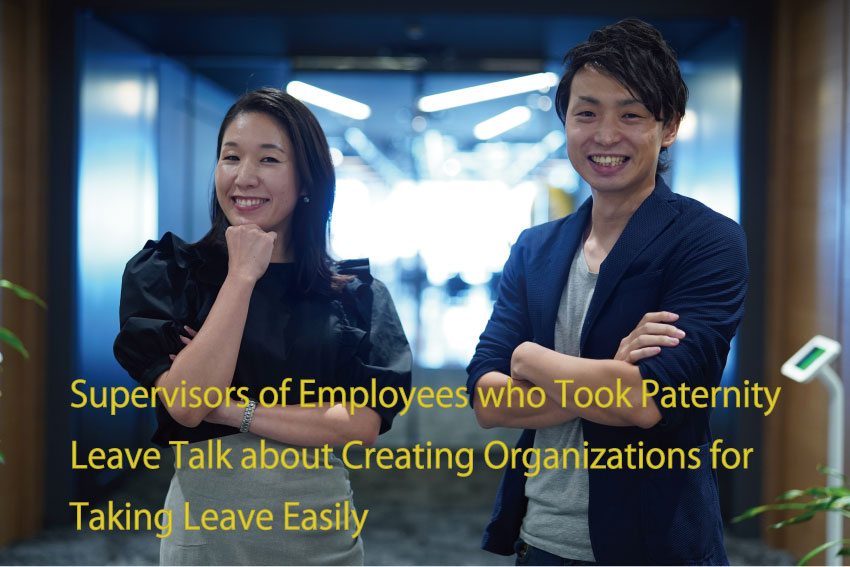The Importance of Paternity Leave - Why Two Fathers Took Between Two and Six Months of Childcare Leave, and its Impact on Their Careers
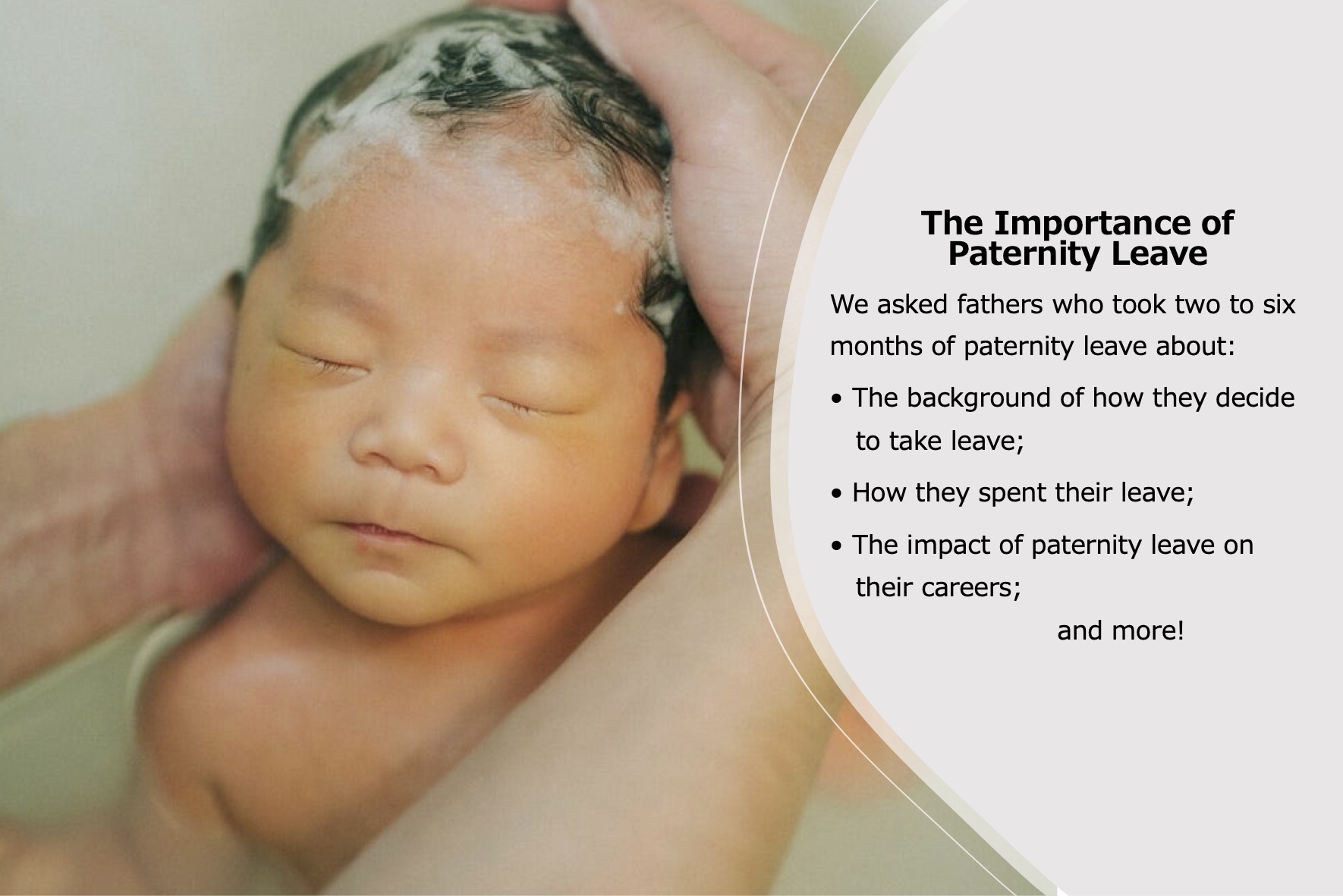
[Notice] Effective October 1, 2023, LINE Fukuoka has changed its company name to LY Communications. Articles published on or before September 30, 2023 were written with our former company name.
At 7.48% (as of 2019), Japan currently has the lowest level among developed countries of men who take childcare leave, and the government is revising related laws to promote the usage of paternity leave. Effective January 1, 2022, Japan's "childcare leave" will be revised through the Amended Act on Childcare Leave, Caregiver Leave, and Other Measures for the Welfare of Workers Caring for Children or Other Family Members.
[Changes]
- Regardless of gender, companies will be obligated to confirm an employee's wishes to take childcare leave if they report a pregnancy or birth
- Large companies will be obligated to release the rate of men who take childcare leave
- New "childbirth leave" will be established for men to be able to take leave flexibly
- Men and women will be able to split childcare leave into four and installments two installments (respectively) until the child is one year old
According to an investigation by Japan's Cabinet Office, the leading reasons men gave for not taking more than one month of childcare leave were not wanting to cause issues at the workplace (37.2%) and a company atmosphere of not recognizing childcare leave for men (32.9%).¹ Many men reported feeling a "sense of guilt" about taking the leave.
Members of LINE Fukuoka Press sat down with two fathers who took paternity leave for two or more months to ask them about the background of how they got over that "sense of guilt," the impact the leave had on their careers, and the significance of childcare leave. If you're considering taking paternity leave but are worried about taking the plunge, or aren't sure about the necessity of childcare leave, we hope that these personal stories provide you with some clues about taking it.
■ Status of paternity leave at LINE Fukuoka (for Fiscal Year 2020)
Percentage of employees who took paternity leave: 46.2%
Average number of days taken: 102.6 (Median value: 90 days)
■ Advice on advance preparation for paternity leave from fathers who took it
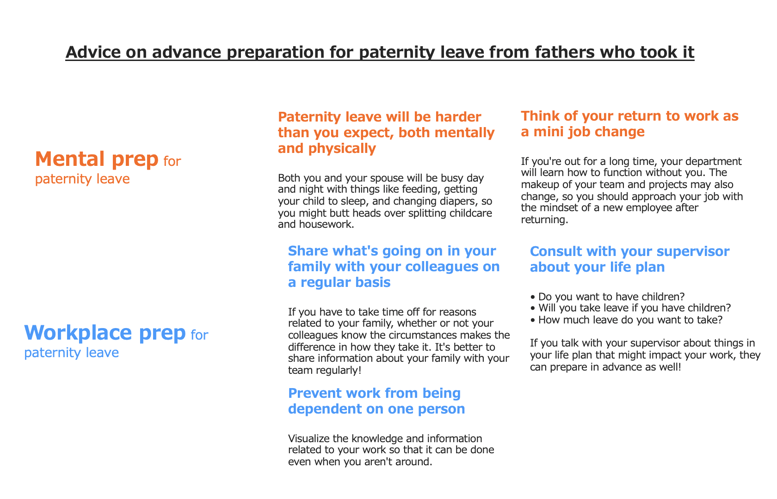
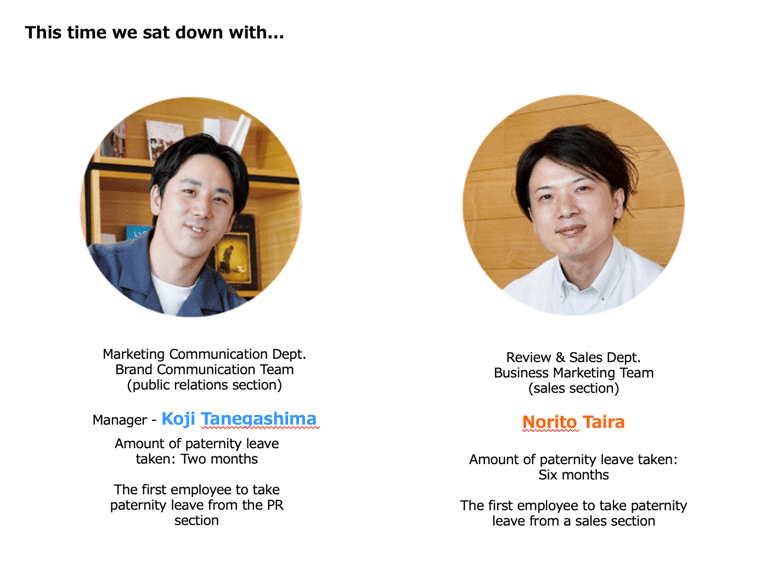
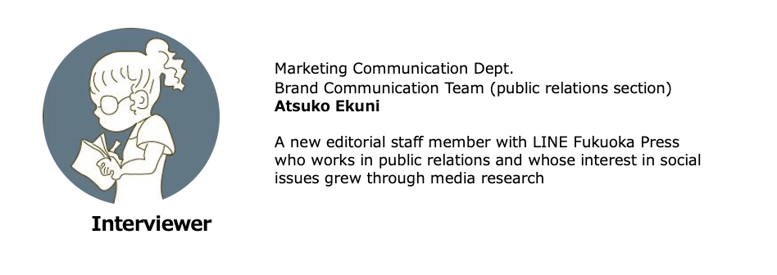
Overcoming the perceived guilt of taking leave
Taira:To be honest, I was. I'm in sales, so taking leave places a burden on my clients and increases the workload for team members filling in for me.
Taira:The support I got from my supervisor when I talked to them about it was a big factor.
At first I was thinking about taking a month of leave, but they told me that they could divide my clients among other members, so it was better for me to dive into it rather than halfheartedly taking leave. I talked with my wife about how much leave I should take, and decided that it was best to take six months because the amount paid for the childcare allowance doesn't change up to that point.²
https://www.mhlw.go.jp/file/06-Seisakujouhou-11600000-Shokugyouanteikyoku/0000178877.pdf
At first, I was planning to take two weeks of leave. I wanted to value my work as well as caring for my child as a part of my life, and wanted to be a part of raising my family, so I thought about taking two weeks of paternity leave as a kind of intensive child-rearing training period. But a member of the HR Department who's also a mother gave me some advice and told me that the postpartum period won't be over in two weeks, and that I'd be able to help my wife if I took as much leave as possible, so I extended it to two months.
But in the end, both the project date and our baby's due date shifted, so I ended up taking my leave at the busiest season of the year. I regret that I wasn't able to hand over my work as we had planned.
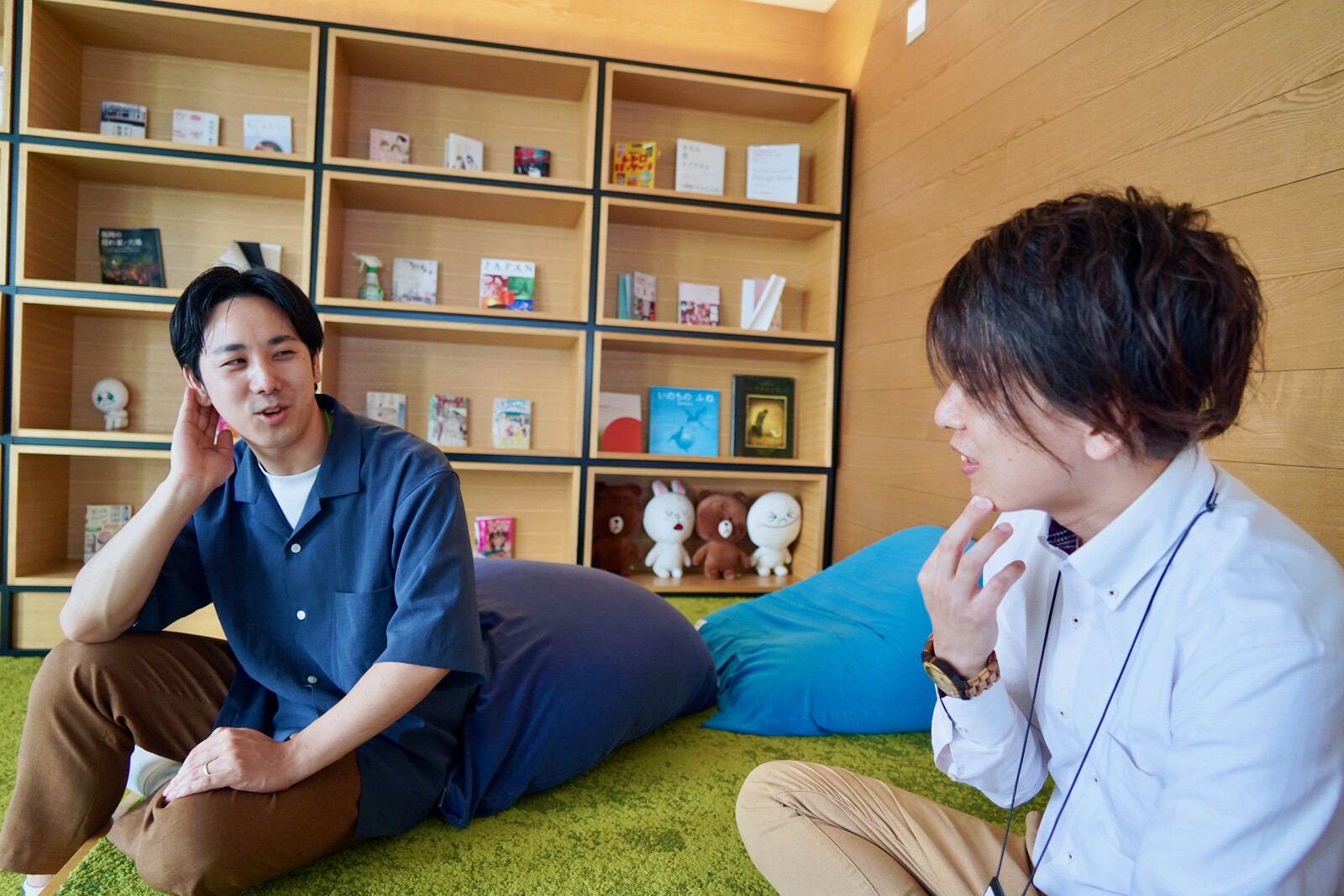
Even if you have an expected due date, no one knows when their child is going to be born. No one can predict when they'll have to take a leave of absence due to illness or nursing care either, so it's important to build a culture of visualizing your work and your knowledge, isn't it? (I should organize my work information, too!)
What's the significance of paternity leave?
Babies need to be fed once every three hours (which takes about an hour), and after that you spend another hour or more putting them to sleep. You have to change their diapers, clean up after them...the list of things to do goes on and on. At this point, you don't even have time to eat or sleep, right?
On top of that, some people say that childbirth can impact a woman's body as much as a major accident, so I think it's a bit much to ask your spouse to do all of that alone after they've just given birth.
I worked so hard for the first month, I didn't let my wife do anything besides feeding. It seems like from her perspective, she put up with a lot of my sloppy housework, like leaving water around the sink after I washed the dishes, though.
I'm glad that I took leave to be a part of it.
■ Mr. Taira and Mr. Tanegashima's chores during paternity leave
General houseworkShopping, cleaning, doing the dishes, making meals, doing the laundry
Childcare (including tasks shared with their spouse)
Bathing, changing diapers, burping, getting them to sleep, skincare, stimulation, changing clothes, feeding, recording baby activity (e.g. what time they slept/woke up, if and how they went to the bathroom)
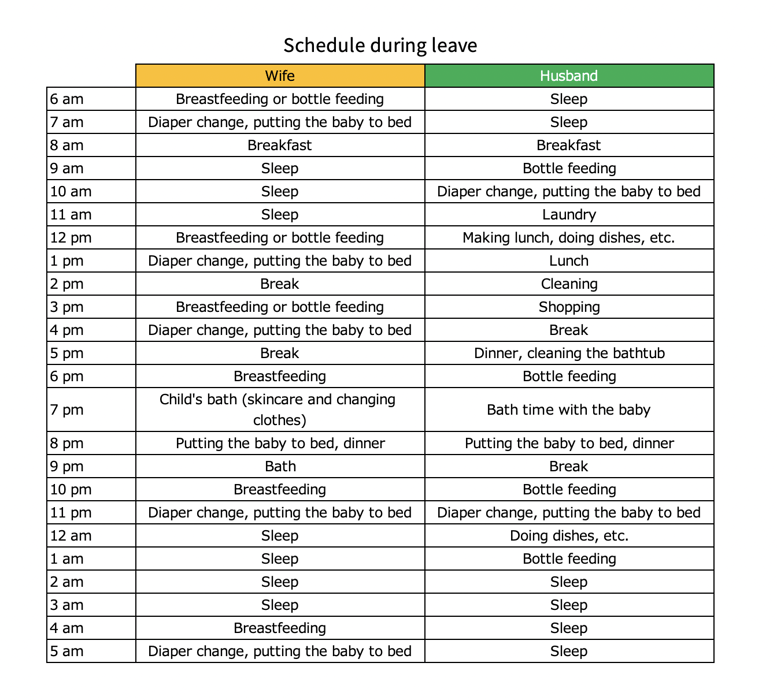
By the way, some people think that fathers don't need to take leave if their wife can go back to their parent's home to give birth and take care of the baby. What are your thoughts on that?
Taira:It's my baby, so I wanted to raise it together with my wife. It didn't feel right to just rely on my spouse's family and not take part in raising my child.
Tanegashima:Some people might think of me as selfish, but I wanted to raise my child together with my wife, so she and I chose for her not to go home to give birth. I thought that I would regret it for the rest of my life if my child had grown up before I realized it.
"It's my child, so I want to raise them myself" is a very straightforward opinion, but it's refreshing to hear it coming from a father.
The old custom of women raising children and men working is a result of ignoring not just women's desire to participate in society but also the desires that fathers have to raise their own children.
The average amount of time Japanese fathers spend raising children is only about 20% of the amount their mothers spend³, and when it comes to family relationship trends, people say that "mom was always around, dad never was." That may change as it becomes easier for fathers to take part in raising their children.
There is also data indicating that whether or not a husband takes part in raising a child from infancy to when they start breastfeeding has a big impact on marriages.
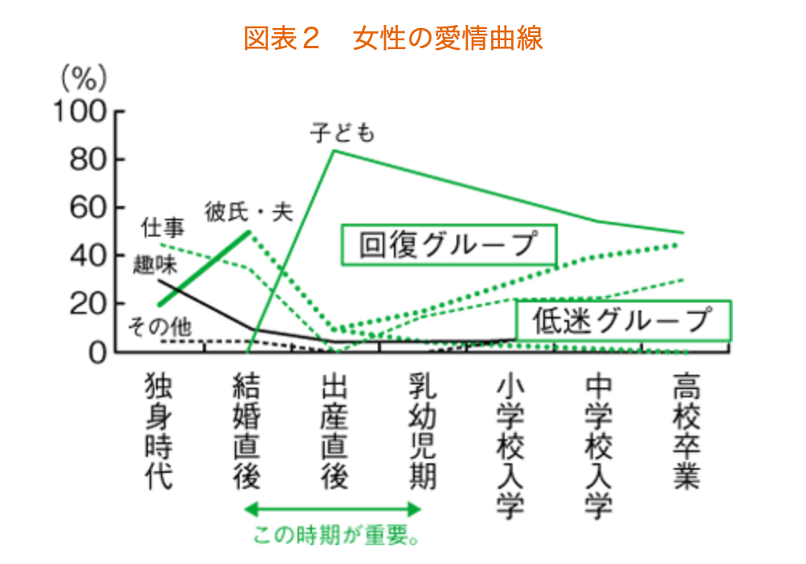
Table taken from: July 2010 edition of the "Kyodo-Sankaku" monthly magazine prepared by the Gender Equality Bureau Cabinet Office Joint Project
https://www.gender.go.jp/public/kyodosankaku/2010/201007/201007_06.html
Tanegashima/Taira:My wife showed me this table. (Laughs) They told me that their love for me would decrease, so I said, "I don't want that, I'll do my best to prevent it."
■ Overcoming the toughest period of childcare as a team is a once-in-a-lifetime experience
Taira:I think that being able to focus on childcare is a wonderful once-in-a-lifetime experience.
Before, I only had a vague idea that childcare was probably going to be hard, but once our child was actually born, I realized that I wouldn't be able to sleep and I had so much to do that I was exhausted every day. Being able to experience that difficulty was a really valuable lesson for me.
There aren't many opportunities for us to overcome something this difficult as a couple, and we can look back and say "Man, things were tough then" once our child grows up.
Tanegashima:That's true, going through the thick and thin of something that big in your life as a couple is probably really meaningful. By spending 24 hours a day with my child, I was able to watch them grow. Small things like them losing a little hair, their face looking a little different, which parent's eyes they have...
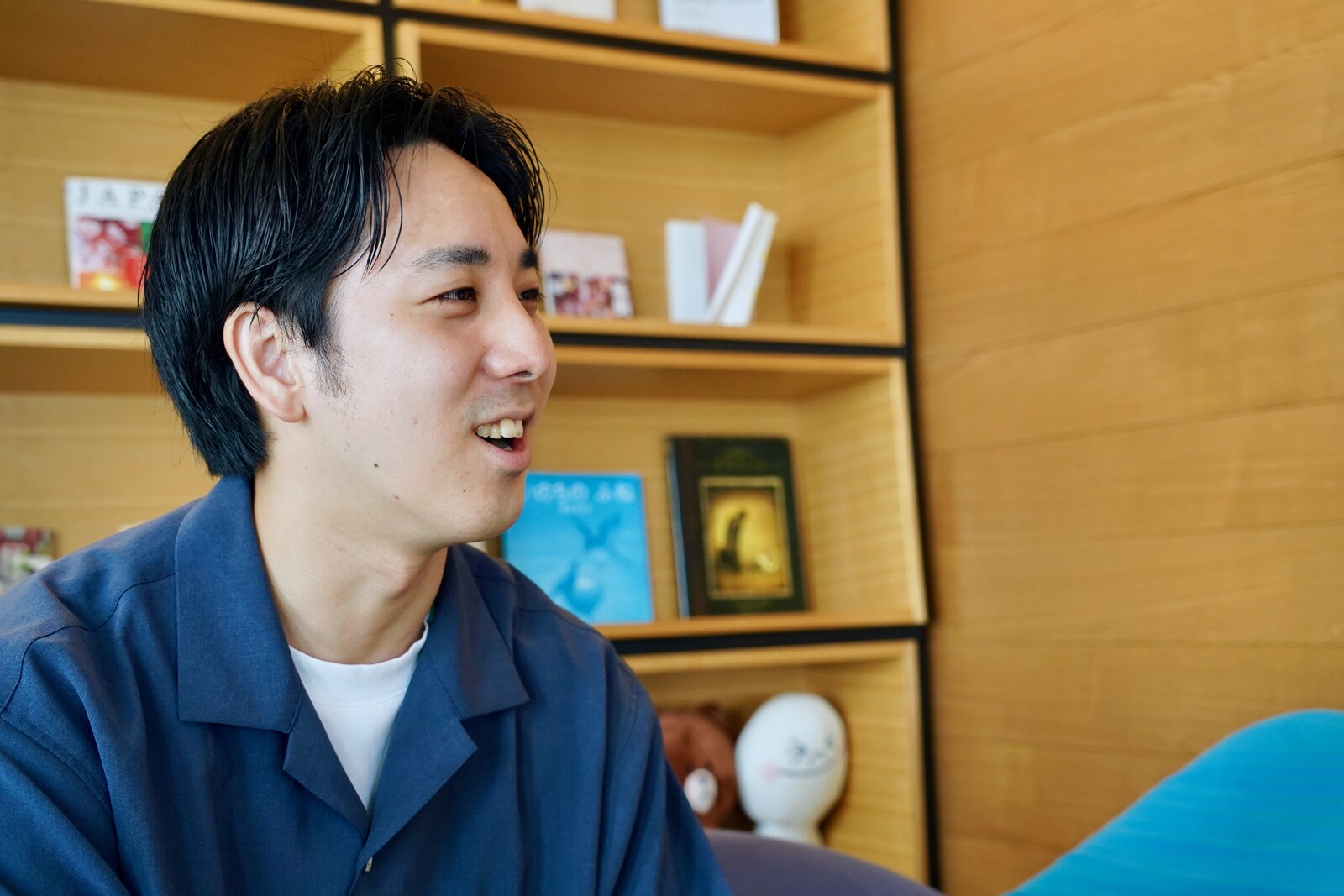
Taira:That's true! Being able to spend so much time together lets you see that subtle growth.
The time you spent watching your child grow and overcoming the most difficult parts of raising a child together seem like they'll be some of the biggest highlights of your long lives as a married couple.
What childcare looked like for these two fathers
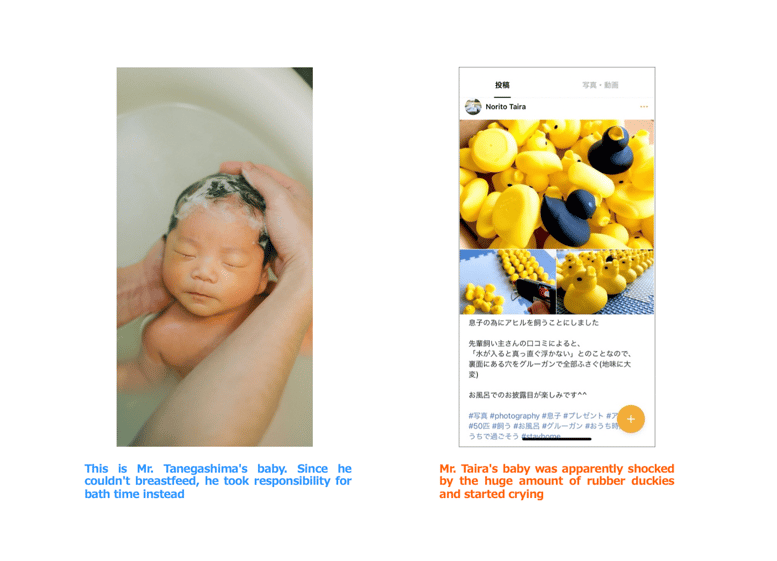
The impact on their careers and working style after returning from leave
■ Workplaces adapted to be functional even if one employee isn't around
Many people are concerned about the impact childcare leave will have on their career and work, and are hesitant to take a long leave of absence. After two and six months respectively, how was it to return to the office?
Tanegashima:I took two months of leave and was able to return to the same role as before. But there were some changes, and the department had become capable of running without me. Of course even if things were going smoothly, they were lacking some aspects that I supported. I felt like it let me think about things with a fresh perspective, such as whether or not it was okay to be lacking in some areas, or if it would be better to make improvements in others.
It's unhealthy for a department not to change at all even if someone takes a long leave of absence; it should change.
So the reality is that it does have some impact on your career and work if you take paternity leave. But you are the deciding factor in whether it's a good impact or a bad one. I think you need to be prepared to treat the experience like a small job change.
Taira:In my case, when I came back from my leave, I found that my department had also gained the ability to function without me. While I was out, new members had joined the department, so our roster as well as the content of our sales services had changed. I was back to working normally after about two weeks, but regaining my sales intuition took a little bit longer.
If you take a long leave absence, services and team members are bound to change. On top of that, demonstrating your value in a department that functioned without you means you have to be willing to experience something similar to a job change.
■ After returning to work, new fathers bring back different ways of doing things
Your children aren't even a year old and are probably still quite a handful, but have you experienced any issues or come up with any creative solutions while raising children and working at the same time?
Tanegashima:I was a workaholic, so doing both at the same time has been really hard for me. The biggest change for me is setting priorities and managing my to-do list.
Previously, when I was excited about something I was working on, I made lots of progress without worrying about time, but now when 6:30 pm rolls around, I shut down my computer even when I'm still in the mood to work.
I have a family to take care of, so I'm conscious of enjoying my excitement at work in installments.
Taira:I don't know when I'm going to have to take time off suddenly, so I don't put things off to the next day and make sure to get them done on the same day.
When kids go to preschool, you never know when they're going to get sick. If my wife and child are under the weather, I have to take paid leave to take care of them, and my co-workers help me out.
Tanegashima:I thought things would be easier when they went to preschool...
Taira:Me too. But it actually isn't, and there's still a lot for us to do!
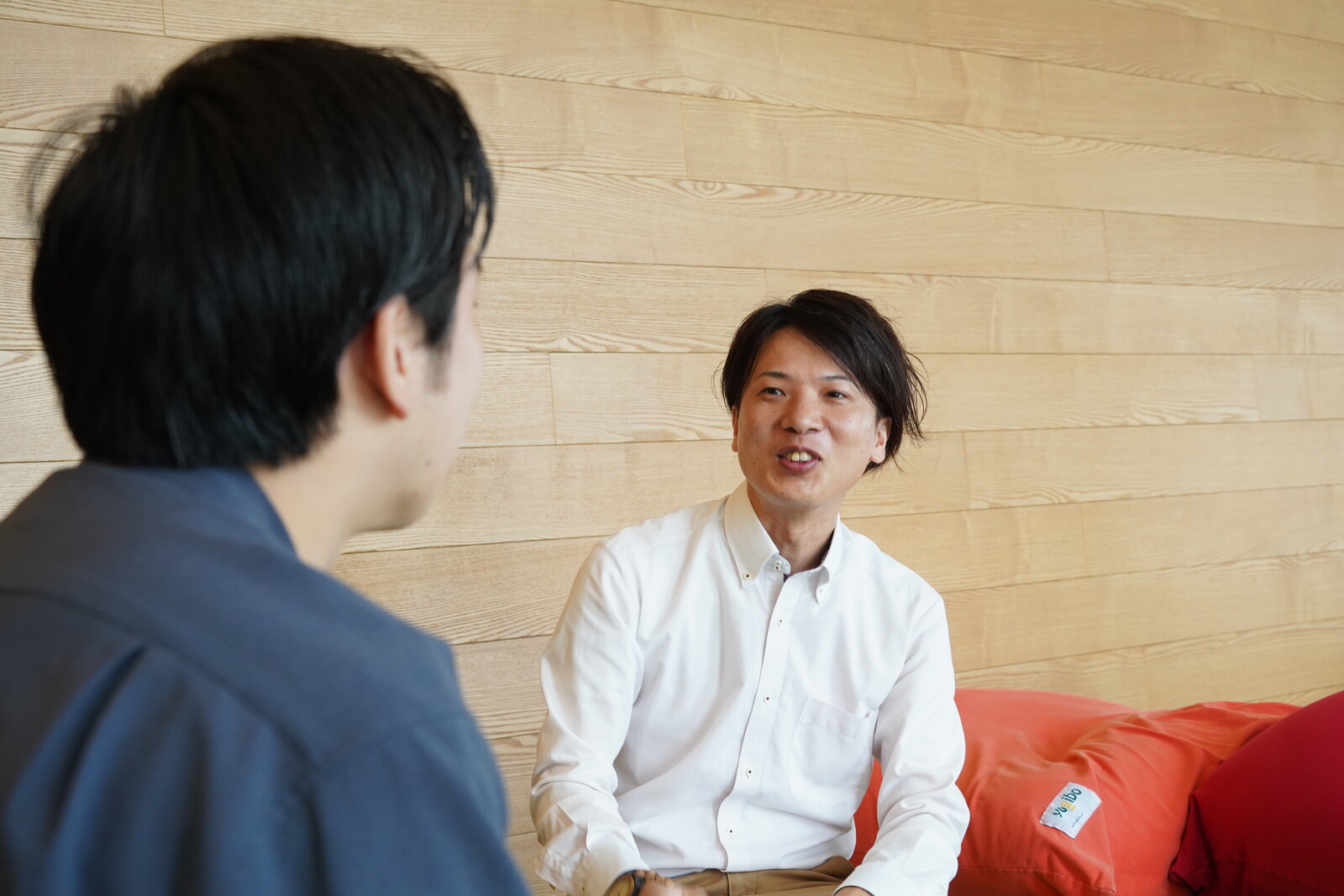
Under the Amended Act on Childcare Leave, Caregiver Leave, and Other Measures for the Welfare of Workers Caring for Children or Other Family Members, parents will be able to take childcare leave in installments. What do you think about these revisions?
Taira:I think the revisions are great. For a salesperson like me, if you hand off a client, your role disappears, so taking a lot of short-term leave repeatedly isn't ideal. But if your work ebbs and flows, you can adopt a new working style of returning to work during busy periods and value both the company and your family.
Tanegashima:Diversifying how parents can take the leave is a good idea. There will be more choices available to people who weren't able to take leave for unavoidable reasons (like being too busy), so I think more fathers will take paternity leave.
In the future, I think the gap between fathers who take paternity leave from companies that look at it negatively and those that look at it positively will continue to grow.
Advice from fathers who took paternity leave for those struggling to take the first step
Many of the expectant parents reading this article are probably unsure about taking childcare leave. Based on your own experiences, could you offer those people some advice?
Taira:I had the understanding of my supervisor, but some people may not be working in those conditions. When I talked with my friends, a lot of them told me their company didn't have that kind of atmosphere so it was hard to take leave.
Even with the understanding of people at the office, I was still a little uneasy. But you can only get the experience of overcoming the difficulties together with your spouse if you spend time with your child when they're young. If you get over the worries you're feeling now, a wonderful experience is ahead of you.
Tanegashima:Why not try taking stock of your life priorities?
If the most important thing to someone is their career, then regardless of whether they're a man or a woman, then I think they should have the option of not taking leave. If you want to value both work and childcare like me, then you have to place value on the early stages if you want to grow quickly as a father.
In my case, my wife wanted to take leave properly to take care of our baby, but if we have another child, she might want to prioritize work.
As a couple, your priorities sometimes change, so in those cases, I think it's best to search for a good balance.
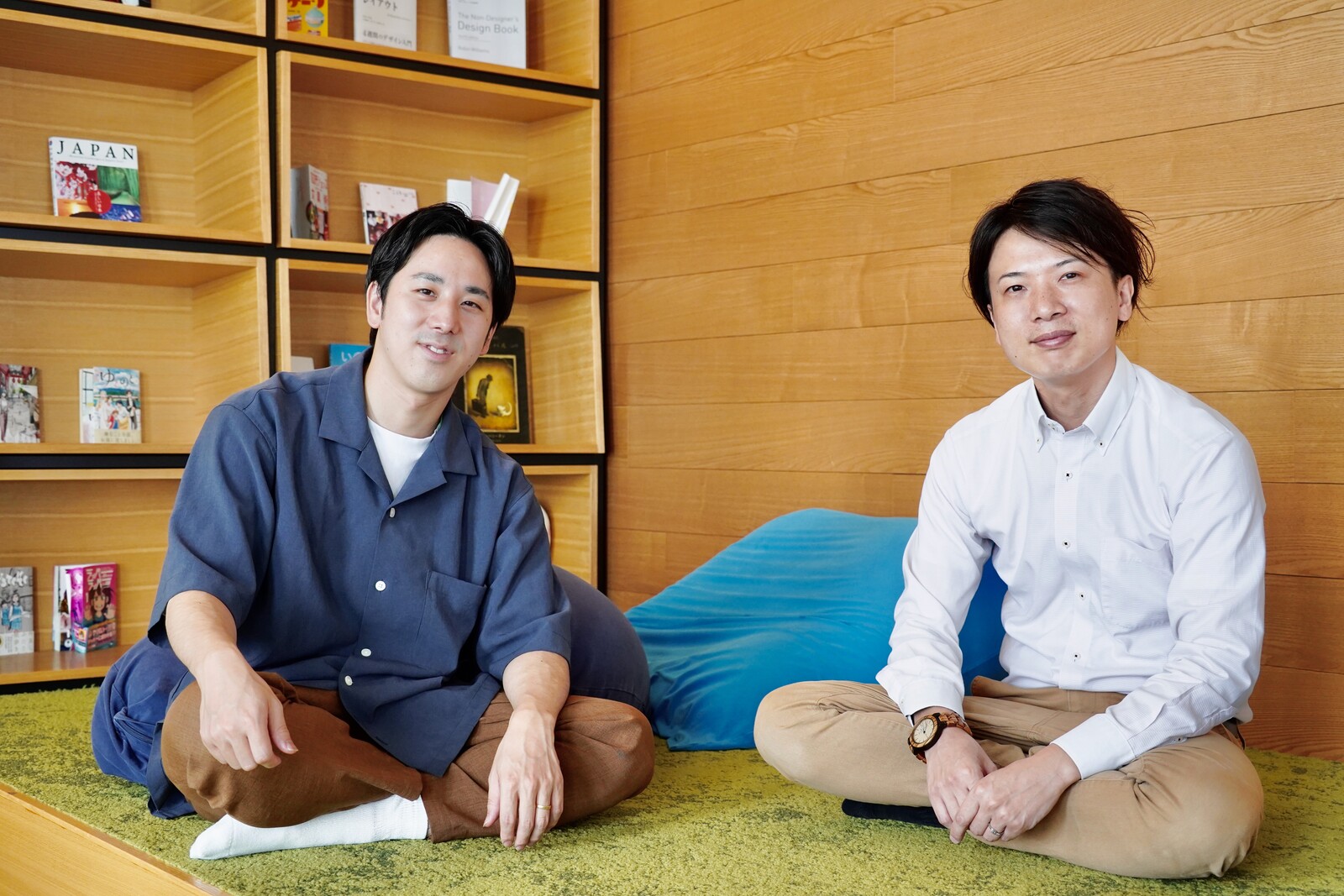
Through this interview with two fathers who took paternity leave, we were moved to realize that whether you're a new dad or working on assignment and can't see your family much, fathers really think about their children a lot when they're working.
We hope that moving forward, Japanese society will openly accept fathers who want to prioritize childcare without saying that it will cause problems in the workplace or that they're being selfish.
In this interview, we sat down with fathers who took paternity leave, but the management of supervisors and company culture are both essential in creating an environment that lets employees take leave. In our next installment, we will interview these fathers' supervisors about "managing a department when an employee is on paternity leave."
We asked them about the operational know-how for creating a department that functions even when someone is on leave, evaluations of those who take leave, and the impact leave has on the progression of people's careers. If you're currently a manager, or worried about how you'll be evaluated and can't take the first step to childcare leave, this article may be for you.
Note: Masks were only removed for photos
Related Articles
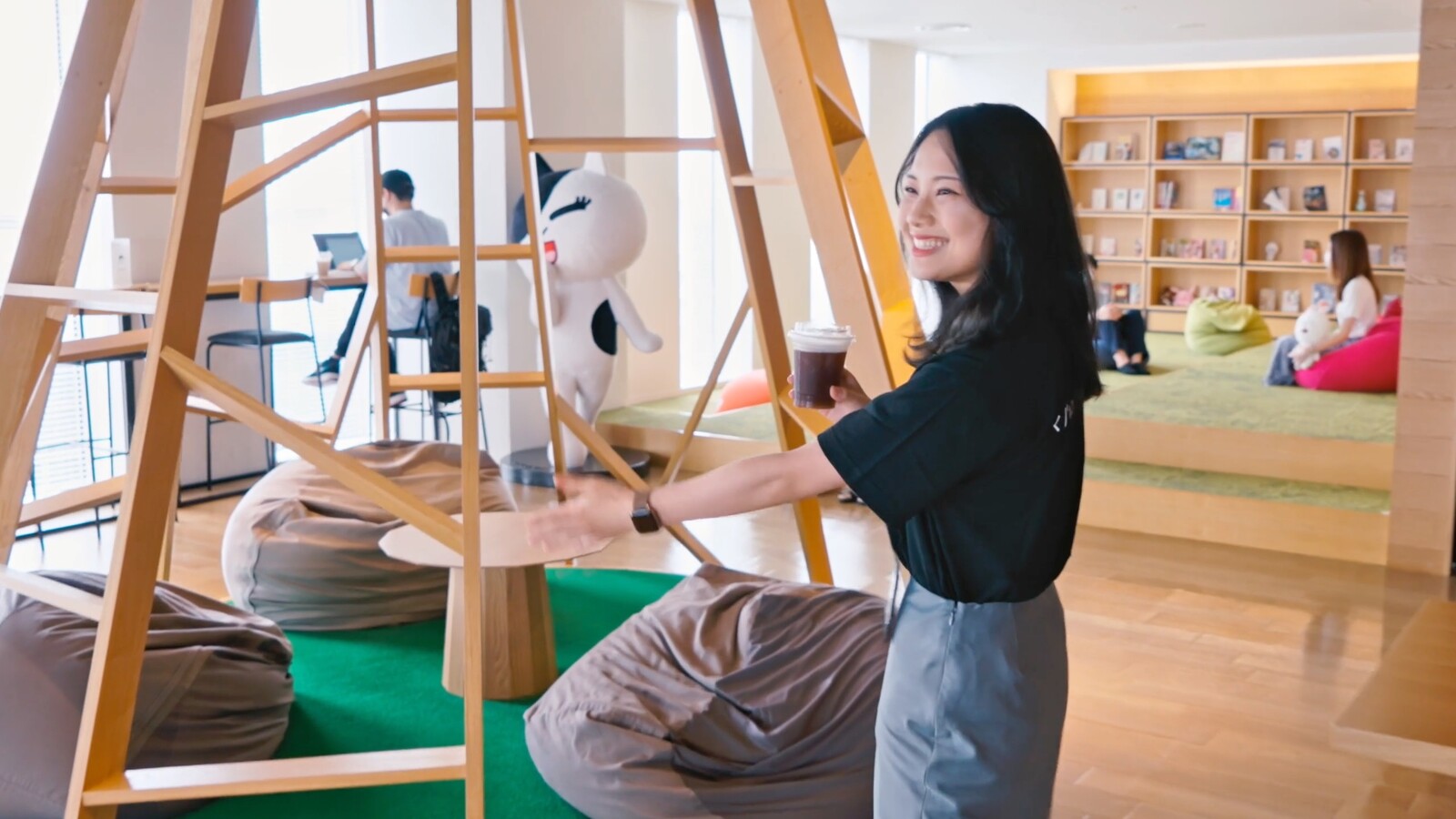
LINE Fukuoka Office Introduction|A Second Year Employee Introduces the WOWs Packed in the Office!
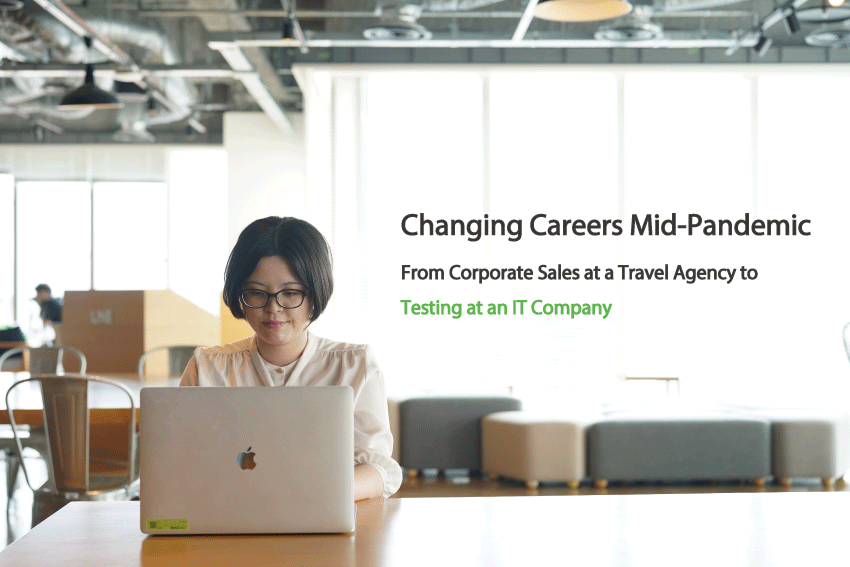
Changing Jobs During the Pandemic - From Corporate Sales at a Travel Agency to ︎Testing at an IT Company

Need a Break? Head to the Cafe!
